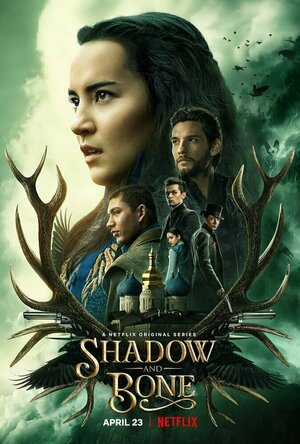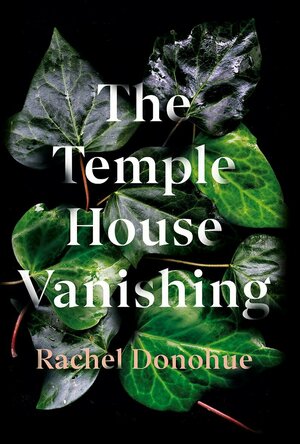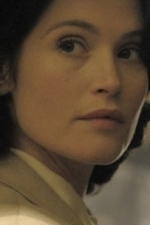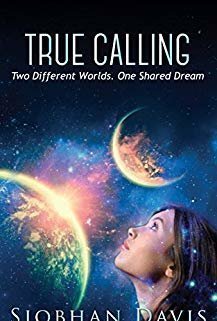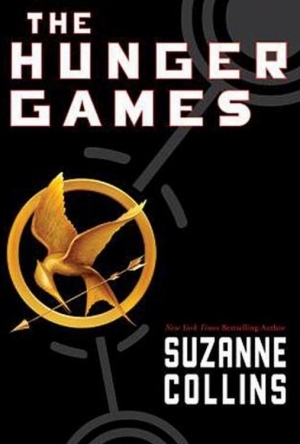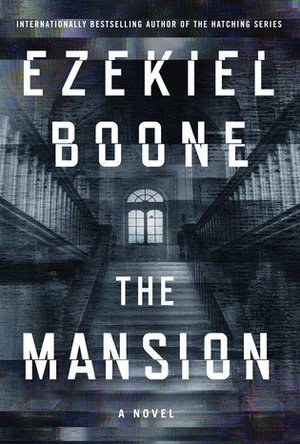Search
Erika (17789 KP) rated Shadow and Bone - Season 1 in TV
Jul 16, 2021
Shadow and Bone is based upon the popular Young Adult series, The Grisha Trilogy, which takes place in a steampunk-ish, Russian fantasy world at war. The story’s main character is Alina Starkov (Jessie Mei Li), an orphan who discovers she has some magical powers when she journeys into something called the Fold with her childhood friend Malyen, “Mal” (Archie Renaux), for short. The witches in this fantasy world are called Grisha and are trained to help with military operations for some king. The General of this witch army is Kirigan, played by Ben Barnes. There are also two other storylines, this group of kidnappers, and a Grisha that’s enslaved.
This series wasn’t really made for a general audience, it was made for the fans of the book trilogy. The series starts, and the watcher is immediately thrust into this fantasy world that doesn’t really make much sense with no prior knowledge. If you couldn’t tell from the series description, I wasn’t really into it. It took me two months to watch all eight of the episodes. I almost didn’t keep watching after the first two episodes, but my boss encouraged me to keep going.
The storyline is your standard YA novel, a girl who didn’t know her powers, some lame love triangle, and for some reason, the girl is the only one that can save the world. Nothing new to see here. My interest was only piqued by Barnes’ character Kirigan, and Barnes was the main reason I actually kept watching the show. The seventh episode, which features Kirigan’s backstory, was the most interesting.
The whole kidnapping crew storyline wasn’t really all that interesting. The leader, Kaz (Freddy Carter) is a kingpin-type character with an unexplained limp, or I missed the explanation. The crew also had an assassin-type character, Inej (Amita Suman), who might not really have been an assassin, again, missed that explanation. The best member of this crew was Jesper (Kit Young), who was the charmer, expert trick shooter, and the second most interesting character in the series.
The subplot with the whole kidnapping Alina thing was neither here nor there, I don’t even remember the characters’ names that were involved in this subplot. Maybe it meant something to the readers of the novels, or it’ll make sense in the next season, but it certainly didn’t mean anything to me. I think I fast-forwarded through those portions in the last episode.
I think I started liking it after the seventh episode, but two interesting episodes does not make an interesting series. It’s been about a week since I finished it, and I honestly had to look up all the characters’ names. I probably seem flippant about explaining the different plots, but it’s legitimately all I remember. This series also didn’t leave me with a hankering to read the book series, nor would I care to watch any further seasons. I’m sure if you’re a fan of the book series, you’d probably love this, but it was not for me.
This series wasn’t really made for a general audience, it was made for the fans of the book trilogy. The series starts, and the watcher is immediately thrust into this fantasy world that doesn’t really make much sense with no prior knowledge. If you couldn’t tell from the series description, I wasn’t really into it. It took me two months to watch all eight of the episodes. I almost didn’t keep watching after the first two episodes, but my boss encouraged me to keep going.
The storyline is your standard YA novel, a girl who didn’t know her powers, some lame love triangle, and for some reason, the girl is the only one that can save the world. Nothing new to see here. My interest was only piqued by Barnes’ character Kirigan, and Barnes was the main reason I actually kept watching the show. The seventh episode, which features Kirigan’s backstory, was the most interesting.
The whole kidnapping crew storyline wasn’t really all that interesting. The leader, Kaz (Freddy Carter) is a kingpin-type character with an unexplained limp, or I missed the explanation. The crew also had an assassin-type character, Inej (Amita Suman), who might not really have been an assassin, again, missed that explanation. The best member of this crew was Jesper (Kit Young), who was the charmer, expert trick shooter, and the second most interesting character in the series.
The subplot with the whole kidnapping Alina thing was neither here nor there, I don’t even remember the characters’ names that were involved in this subplot. Maybe it meant something to the readers of the novels, or it’ll make sense in the next season, but it certainly didn’t mean anything to me. I think I fast-forwarded through those portions in the last episode.
I think I started liking it after the seventh episode, but two interesting episodes does not make an interesting series. It’s been about a week since I finished it, and I honestly had to look up all the characters’ names. I probably seem flippant about explaining the different plots, but it’s legitimately all I remember. This series also didn’t leave me with a hankering to read the book series, nor would I care to watch any further seasons. I’m sure if you’re a fan of the book series, you’d probably love this, but it was not for me.
Ivana A. | Diary of Difference (1171 KP) rated The Temple House Vanishing in Books
Feb 3, 2020
<a href="https://amzn.to/2Wi7amb">Wishlist</a>; | <a
<a href="https://diaryofdifference.com/">Blog</a>; | <a href="https://www.facebook.com/diaryofdifference/">Facebook</a>; | <a href="https://twitter.com/DiaryDifference">Twitter</a>; | <a href="https://www.instagram.com/diaryofdifference/">Instagram</a>; | <a href="https://www.pinterest.co.uk/diaryofdifference/pins/">Pinterest</a>;
<img src="https://i1.wp.com/diaryofdifference.com/wp-content/uploads/2019/11/Book-Review-Banner-29.png?resize=768%2C432&ssl=1"/>;
<b><i>Twenty-five years ago, a sixteen-year-old schoolgirl and her charismatic teacher disappeared without trace…</i></b>
The Temple House Vanishing left me with a tiny scar in my soul after reading it. It is intriguing and mysterious, it is real and delusional. The next time when I mention a special mystery, with a cruel end – this will be the first book that pops in my mind.
Louisa and Victoria are two friends that study in a Catholic girls’ boarding school. Both of them have something unique about themselves. They can both see the world in a different light and disobey the rules slightly.
They both also manage to become intrigued with their young, bohemian teacher and act in silly ways when they are around him. Until, one night, he and Louisa suddenly disappear.
Twenty-five years later, one journalist dives into the story again, hoping to finally find out the truth. The search for truth will uncover many buried secrets and a suppressed desire. It will break hearts and lay a lost soul to rest.
This novel might be the most intense novel I have read in 2019, right next to The Silent Patient. And The Devil Aspect. To witness the life of Louisa, and be aware of what is happening around her is quite intense. As soon as she meets Victoria, they click, and they both know they will become best friends. But even Louisa can feel that there is something odd about Victoria. After all, her last best friend left the school and no one knows what happened.
<b><i>On that subject – why didn’t we find out what happened to this girl?</i></b>
One friendship, and a very interestingly weird love triangle. I felt so bad for Louisa, because all she ever cared about was Victoria. And all she ever wanted to do is to help in any way. She loved Victoria, but she should’ve said something. If she spoke – everything would now be different.
The teacher reminded me of one of my high-school teachers. The type of person that will show you that the world isn’t how you’ve always known it. There is a meaning behind it all, and there is a purpose for everything. My teacher, she could make me feel like I was able to achieve everything. Anything was possible, if we only followed the right path. Mr Lavelle made all the girls feel like this, and counting his beautiful face as well, it’s no surprise that most of them fell in love with him. But he encouraged them, in his own subtle way. Sweet look in the eyes, gentle touch on the shoulder, and that is all it takes to confuse a teenage girl.
What I loved most in this book was the fact that I had so many theories whilst reading it. I was certain I knew how it all ended. But I was wrong. I didn’t have a clue on what was actually happening until the very end, and I was still surprised. After finishing the book and having a little think, as I always do with books that amaze me – I realised something. The clues were there from the very beginning. But unless you already know the ending I doubt you will notice them. And that is the great masterpiece of writing. And for that, I salute you, Rachel Donohue.
<b><i>If you love mysteries, thrillers, disappearances and unpredictable endings – I will guarantee you will love this book. And not only that, but you will also devour it in a day!</i></b>
<img src="https://i0.wp.com/diaryofdifference.com/wp-content/uploads/2019/11/The-Temple-House-Vanishing.jpg?resize=768%2C432&ssl=1"/>;
<b><i>Thank you to the team at LoveReading UK, for letting me part of the Ambassador Book Buzz and sending me an ARC copy of this book in exchange for an honest review. Check out the other amazing bloggers too! </i></b>
<a href="https://amzn.to/2Wi7amb">Wishlist</a>; | <a
<a href="https://diaryofdifference.com/">Blog</a>; | <a href="https://www.facebook.com/diaryofdifference/">Facebook</a>; | <a href="https://twitter.com/DiaryDifference">Twitter</a>; | <a href="https://www.instagram.com/diaryofdifference/">Instagram</a>; | <a href="https://www.pinterest.co.uk/diaryofdifference/pins/">Pinterest</a>;
<a href="https://diaryofdifference.com/">Blog</a>; | <a href="https://www.facebook.com/diaryofdifference/">Facebook</a>; | <a href="https://twitter.com/DiaryDifference">Twitter</a>; | <a href="https://www.instagram.com/diaryofdifference/">Instagram</a>; | <a href="https://www.pinterest.co.uk/diaryofdifference/pins/">Pinterest</a>;
<img src="https://i1.wp.com/diaryofdifference.com/wp-content/uploads/2019/11/Book-Review-Banner-29.png?resize=768%2C432&ssl=1"/>;
<b><i>Twenty-five years ago, a sixteen-year-old schoolgirl and her charismatic teacher disappeared without trace…</i></b>
The Temple House Vanishing left me with a tiny scar in my soul after reading it. It is intriguing and mysterious, it is real and delusional. The next time when I mention a special mystery, with a cruel end – this will be the first book that pops in my mind.
Louisa and Victoria are two friends that study in a Catholic girls’ boarding school. Both of them have something unique about themselves. They can both see the world in a different light and disobey the rules slightly.
They both also manage to become intrigued with their young, bohemian teacher and act in silly ways when they are around him. Until, one night, he and Louisa suddenly disappear.
Twenty-five years later, one journalist dives into the story again, hoping to finally find out the truth. The search for truth will uncover many buried secrets and a suppressed desire. It will break hearts and lay a lost soul to rest.
This novel might be the most intense novel I have read in 2019, right next to The Silent Patient. And The Devil Aspect. To witness the life of Louisa, and be aware of what is happening around her is quite intense. As soon as she meets Victoria, they click, and they both know they will become best friends. But even Louisa can feel that there is something odd about Victoria. After all, her last best friend left the school and no one knows what happened.
<b><i>On that subject – why didn’t we find out what happened to this girl?</i></b>
One friendship, and a very interestingly weird love triangle. I felt so bad for Louisa, because all she ever cared about was Victoria. And all she ever wanted to do is to help in any way. She loved Victoria, but she should’ve said something. If she spoke – everything would now be different.
The teacher reminded me of one of my high-school teachers. The type of person that will show you that the world isn’t how you’ve always known it. There is a meaning behind it all, and there is a purpose for everything. My teacher, she could make me feel like I was able to achieve everything. Anything was possible, if we only followed the right path. Mr Lavelle made all the girls feel like this, and counting his beautiful face as well, it’s no surprise that most of them fell in love with him. But he encouraged them, in his own subtle way. Sweet look in the eyes, gentle touch on the shoulder, and that is all it takes to confuse a teenage girl.
What I loved most in this book was the fact that I had so many theories whilst reading it. I was certain I knew how it all ended. But I was wrong. I didn’t have a clue on what was actually happening until the very end, and I was still surprised. After finishing the book and having a little think, as I always do with books that amaze me – I realised something. The clues were there from the very beginning. But unless you already know the ending I doubt you will notice them. And that is the great masterpiece of writing. And for that, I salute you, Rachel Donohue.
<b><i>If you love mysteries, thrillers, disappearances and unpredictable endings – I will guarantee you will love this book. And not only that, but you will also devour it in a day!</i></b>
<img src="https://i0.wp.com/diaryofdifference.com/wp-content/uploads/2019/11/The-Temple-House-Vanishing.jpg?resize=768%2C432&ssl=1"/>;
<b><i>Thank you to the team at LoveReading UK, for letting me part of the Ambassador Book Buzz and sending me an ARC copy of this book in exchange for an honest review. Check out the other amazing bloggers too! </i></b>
<a href="https://amzn.to/2Wi7amb">Wishlist</a>; | <a
<a href="https://diaryofdifference.com/">Blog</a>; | <a href="https://www.facebook.com/diaryofdifference/">Facebook</a>; | <a href="https://twitter.com/DiaryDifference">Twitter</a>; | <a href="https://www.instagram.com/diaryofdifference/">Instagram</a>; | <a href="https://www.pinterest.co.uk/diaryofdifference/pins/">Pinterest</a>;
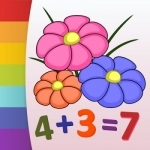
Color by Numbers - Flowers
Games and Education
App
If your child likes flowers, this coloring game is made for them. Beautiful flowers make them feel...

Color by Numbers - Halloween
Games and Education
App
Every year, boys and girls all over the world eagerly await Halloween. For on this night, the most...
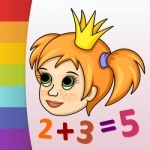
Color by Numbers - Princesses
Games and Education
App
Let your young artist color in these enchanting princesses and heroines from here favorite stories...
Bob Mann (459 KP) rated Their Finest (2017) in Movies
Sep 29, 2021
Keep Calm and Carry on Writing.
In a well-mined category, “Their Finest” is a World War 2 comedy/drama telling a tale I haven’t seen told before: the story behind the British Ministry of Information and their drive to produce propaganda films that support morale and promote positive messages in a time of national crisis. For it is 1940 and London is under nightly attack by the Luftwaffe during the time known as “The Blitz”. Unfortunately the Ministry is run by a bunch of toffs, and their output is laughably misaligned with the working class population, and especially the female population: with their husbands fighting overseas, these two groups are fast becoming one and the same. For women are finding and enjoying new empowerment and freedom in being socially unshackled from the kitchen sink.
The brave crew of the Nancy Starling. Bill Nighy as Uncle Frank, with twins Lily and Francesca Knight as the Starling sisters.
Enter Catrin Cole (Gemma Arterton, “The Girl with all the Gifts“) who is one such woman arriving to a dangerous London from South Wales to live with struggling disabled artist Ellis (Jack Huston, grandson of John Huston). Catrin, stretching the truth a little, brings a stirring ‘true’ tale of derring-do about the Dunkirk evacuation to the Ministry’s attention. She is then employed to “write the slop” (the woman’s dialogue) in the writing team headed by spiky Tom Buckley (Sam Claflin, “Me Before You“).
One of the stars of the film within the film is ‘Uncle Frank’ played by the aging but charismatic actor Ambrose Hilliard (Bill Nighy, “Dad’s Army“, “Love Actually”). Catrin proves her worth by pouring oil on troubled waters as the army insist on the introduction of an American airman (Jake Lacy, “Carol“) to the stressful mix. An attraction builds between Catrin and Tom, but how will the love triangle resolve itself? (For a significant clue see the “Spoiler Section” below the trailer, but be warned that this is a major spoiler!).
As you might expect if you’ve seen the trailer the film is, in the main, warm and funny with Gemma Arterton just gorgeously huggable as the determined young lady trying to make it in a misogynistic 40’s world of work. Arterton is just the perfect “girl next door”: (sigh… if I was only 20 years younger and unattached!) But mixed in with the humour and the romantic storyline is a harsh sprinkling of the trials of war and not a little heartbreak occurs. This is at least a 5 tissue movie.
Claflin, who is having a strong year with appearances in a wide range of films, is also eminently watchable. One of his best scenes is a speech with Arterton about “why people love the movies”, a theory that the film merrily and memorably drives a stake through the heart of!
Elsewhere Lacy is hilarious as the hapless airman with zero acting ability; Helen McCrory (“Harry Potter”) as Sophie Smith vamps it up wonderfully as the potential Polish love interest for Hilliard; Richard E Grant (“Logan“) and Jeremy Irons (“The Lion King”, “Die Hard: with a Vengeance”) pop up in useful cameos and Eddie Marsan (“Sherlock Holmes”) is also touching as Hilliard’s long-suffering agent.
But it is Bill Nighy’s Hilliard who carries most of the wit and humour of the film with his pompous thespian persona, basking in the dwindling glory of a much loved series of “Inspector Lynley” films. With his pomposity progressively warming under the thawing effect of Sophie and Catrin, you have to love him! Bill Nighy is, well, Bill Nighy. Hugh Grant gets it (unfairly) in the neck for “being Hugh Grant” in every film, but this pales in comparison with Nighy’s performances! But who cares: his kooky delivery is just delightful and he is a national treasure!
Slightly less convincing for me was Rachael Stirling’s role as a butch ministry busybody with more than a hint of the lesbian about her. Stirling’s performance in the role is fine, but would this really have been so blatant in 1940’s Britain? This didn’t really ring true for me.
While the film gamely tries to pull off London in the Blitz the film’s limited budget (around £25m) makes everything feel a little underpowered and ’empty’: a few hundred more extras in the Underground/Blitz scenes for example would have helped no end. However, the special effects crew do their best and the cinematography by Sebastian Blenkov (“The Riot Club”) suitably conveys the mood: a scene where Catrin gets caught in a bomb blast outside a clothes shop is particularly moving.
As with all comedy dramas, sometimes the bedfellows lie uncomfortably with each other, and a couple of plot twists: one highly predictable; one shockingly unpredictable make this a non-linear watch. This rollercoaster of a script by Gaby Chiappe, in an excellent feature film debut (she actually also has a cameo in the propaganda “carrot film”!), undeniably adds interest and makes the film more memorable. However (I know from personal experience) that the twist did not please everyone in the audience!
Despite its occasionally uneven tone, this is a really enjoyable watch (particularly for more mature audiences) and Danish director Lone Scherfig finally has a vehicle that matches the quality of her much praised Carey Mulligan vehicle “An Education”.
The brave crew of the Nancy Starling. Bill Nighy as Uncle Frank, with twins Lily and Francesca Knight as the Starling sisters.
Enter Catrin Cole (Gemma Arterton, “The Girl with all the Gifts“) who is one such woman arriving to a dangerous London from South Wales to live with struggling disabled artist Ellis (Jack Huston, grandson of John Huston). Catrin, stretching the truth a little, brings a stirring ‘true’ tale of derring-do about the Dunkirk evacuation to the Ministry’s attention. She is then employed to “write the slop” (the woman’s dialogue) in the writing team headed by spiky Tom Buckley (Sam Claflin, “Me Before You“).
One of the stars of the film within the film is ‘Uncle Frank’ played by the aging but charismatic actor Ambrose Hilliard (Bill Nighy, “Dad’s Army“, “Love Actually”). Catrin proves her worth by pouring oil on troubled waters as the army insist on the introduction of an American airman (Jake Lacy, “Carol“) to the stressful mix. An attraction builds between Catrin and Tom, but how will the love triangle resolve itself? (For a significant clue see the “Spoiler Section” below the trailer, but be warned that this is a major spoiler!).
As you might expect if you’ve seen the trailer the film is, in the main, warm and funny with Gemma Arterton just gorgeously huggable as the determined young lady trying to make it in a misogynistic 40’s world of work. Arterton is just the perfect “girl next door”: (sigh… if I was only 20 years younger and unattached!) But mixed in with the humour and the romantic storyline is a harsh sprinkling of the trials of war and not a little heartbreak occurs. This is at least a 5 tissue movie.
Claflin, who is having a strong year with appearances in a wide range of films, is also eminently watchable. One of his best scenes is a speech with Arterton about “why people love the movies”, a theory that the film merrily and memorably drives a stake through the heart of!
Elsewhere Lacy is hilarious as the hapless airman with zero acting ability; Helen McCrory (“Harry Potter”) as Sophie Smith vamps it up wonderfully as the potential Polish love interest for Hilliard; Richard E Grant (“Logan“) and Jeremy Irons (“The Lion King”, “Die Hard: with a Vengeance”) pop up in useful cameos and Eddie Marsan (“Sherlock Holmes”) is also touching as Hilliard’s long-suffering agent.
But it is Bill Nighy’s Hilliard who carries most of the wit and humour of the film with his pompous thespian persona, basking in the dwindling glory of a much loved series of “Inspector Lynley” films. With his pomposity progressively warming under the thawing effect of Sophie and Catrin, you have to love him! Bill Nighy is, well, Bill Nighy. Hugh Grant gets it (unfairly) in the neck for “being Hugh Grant” in every film, but this pales in comparison with Nighy’s performances! But who cares: his kooky delivery is just delightful and he is a national treasure!
Slightly less convincing for me was Rachael Stirling’s role as a butch ministry busybody with more than a hint of the lesbian about her. Stirling’s performance in the role is fine, but would this really have been so blatant in 1940’s Britain? This didn’t really ring true for me.
While the film gamely tries to pull off London in the Blitz the film’s limited budget (around £25m) makes everything feel a little underpowered and ’empty’: a few hundred more extras in the Underground/Blitz scenes for example would have helped no end. However, the special effects crew do their best and the cinematography by Sebastian Blenkov (“The Riot Club”) suitably conveys the mood: a scene where Catrin gets caught in a bomb blast outside a clothes shop is particularly moving.
As with all comedy dramas, sometimes the bedfellows lie uncomfortably with each other, and a couple of plot twists: one highly predictable; one shockingly unpredictable make this a non-linear watch. This rollercoaster of a script by Gaby Chiappe, in an excellent feature film debut (she actually also has a cameo in the propaganda “carrot film”!), undeniably adds interest and makes the film more memorable. However (I know from personal experience) that the twist did not please everyone in the audience!
Despite its occasionally uneven tone, this is a really enjoyable watch (particularly for more mature audiences) and Danish director Lone Scherfig finally has a vehicle that matches the quality of her much praised Carey Mulligan vehicle “An Education”.
Movie Metropolis (309 KP) rated The Hunger Games: Mockingjay - Part 2 (2015) in Movies
Jun 10, 2019
An emotional goodbye
Over the last three years, The Hunger Games franchise has thrilled and delighted fans and newcomers to the series with its mix of wonderful special effects, a great cast and intriguing plots.
With the second instalment, Catching Fire, proving to be the best in the series, expectations for the finale, Mockingjay Part 2 were incredibly high. But is this the end we all wanted, and more importantly deserved?
Mockingjay Part 2 picks up immediately after the events of Part 1, as Jennifer Lawrence’s Katniss Everdeen recovers from a vicious attack by her friend and on-off lover Peeta, played by Josh Hutcherson in a troubled and career-best performance.
With Katniss becoming a symbol of hope in a time of dictatorship, Lawrence marches with her friends and allies to storm the Capitol and overthrow the tyrannical President Snow, a deliciously evil Donald Sutherland.
The catch? Snow and previous Game makers have booby-trapped the Capitol with a range of sadistic tests trying to stop the rebellion in its tracks.
The Hunger Games has become renowned for a fantastic supporting cast that includes talent like Elizabeth Banks, Woody Harrelson, Stanley Tucci, the late Philip Seymour Hoffman and Julianne Moore, with the latter being particularly memorable.
Unfortunately, as is often the case with large Young Adult franchises, these fantastic actors are lost somewhat as director Francis Lawrence tries to tie up all loose ends with the main teens; Jennifer Lawrence, Josh Hutcherson and Liam Hemsworth.
The aforementioned three have been part of a love triangle so convoluted it’s difficult to remember who is in love with who, but thankfully this takes a back seat to the action, though each of the three brings enough acting credibility to make the more romantic elements bearable.
Moreover, Mockingjay Part 2 pushes the boundaries of the much-maligned 12A certificate. This is by far the most harrowing and bleak of the four films and none of its predecessors were exactly a ray of sunshine. The characters are pushed to breaking point as the realisation of the Capitol’s evil fully sinks in and the inevitable loss of life is both thrilling and utterly devastating.
The special effects have been rightly ramped up for this final instalment with District 13 and the Capitol looking truly stunning. Each of the action sequences is filmed with such confidence and this shows off the exceptional sets much better than the handy cam that plagued the first film.
Unfortunately, the need to fill a movie nearly 140 minutes in length has led to a tone that occasionally jars and drags a little too frequently. This was a problem with Part 2’s predecessor and whilst the idea to split the final book into two films works better here, the balance is still not quite right and still reeks of money-making.
However, each of the action sequences are edge of the seat stuff with an underground sewer providing the film’s most pulse-racing and dramatic scenes. There’s a whiff of Ridley Scott’s Alien in Francis Lawrence’s direction throughout this extended set piece.
Overall, The Hunger Games series has ended on a high. From its beautiful cinematography to an exceptional main and supporting cast, director Francis Lawrence, who has been with the series since Catching Fire, has managed to craft a harrowing end to a group of films whose influence will be felt for many years to come.
https://moviemetropolis.net/2015/11/22/an-emotional-goodbye-the-hunger-games-mockingjay-part-2-review/
With the second instalment, Catching Fire, proving to be the best in the series, expectations for the finale, Mockingjay Part 2 were incredibly high. But is this the end we all wanted, and more importantly deserved?
Mockingjay Part 2 picks up immediately after the events of Part 1, as Jennifer Lawrence’s Katniss Everdeen recovers from a vicious attack by her friend and on-off lover Peeta, played by Josh Hutcherson in a troubled and career-best performance.
With Katniss becoming a symbol of hope in a time of dictatorship, Lawrence marches with her friends and allies to storm the Capitol and overthrow the tyrannical President Snow, a deliciously evil Donald Sutherland.
The catch? Snow and previous Game makers have booby-trapped the Capitol with a range of sadistic tests trying to stop the rebellion in its tracks.
The Hunger Games has become renowned for a fantastic supporting cast that includes talent like Elizabeth Banks, Woody Harrelson, Stanley Tucci, the late Philip Seymour Hoffman and Julianne Moore, with the latter being particularly memorable.
Unfortunately, as is often the case with large Young Adult franchises, these fantastic actors are lost somewhat as director Francis Lawrence tries to tie up all loose ends with the main teens; Jennifer Lawrence, Josh Hutcherson and Liam Hemsworth.
The aforementioned three have been part of a love triangle so convoluted it’s difficult to remember who is in love with who, but thankfully this takes a back seat to the action, though each of the three brings enough acting credibility to make the more romantic elements bearable.
Moreover, Mockingjay Part 2 pushes the boundaries of the much-maligned 12A certificate. This is by far the most harrowing and bleak of the four films and none of its predecessors were exactly a ray of sunshine. The characters are pushed to breaking point as the realisation of the Capitol’s evil fully sinks in and the inevitable loss of life is both thrilling and utterly devastating.
The special effects have been rightly ramped up for this final instalment with District 13 and the Capitol looking truly stunning. Each of the action sequences is filmed with such confidence and this shows off the exceptional sets much better than the handy cam that plagued the first film.
Unfortunately, the need to fill a movie nearly 140 minutes in length has led to a tone that occasionally jars and drags a little too frequently. This was a problem with Part 2’s predecessor and whilst the idea to split the final book into two films works better here, the balance is still not quite right and still reeks of money-making.
However, each of the action sequences are edge of the seat stuff with an underground sewer providing the film’s most pulse-racing and dramatic scenes. There’s a whiff of Ridley Scott’s Alien in Francis Lawrence’s direction throughout this extended set piece.
Overall, The Hunger Games series has ended on a high. From its beautiful cinematography to an exceptional main and supporting cast, director Francis Lawrence, who has been with the series since Catching Fire, has managed to craft a harrowing end to a group of films whose influence will be felt for many years to come.
https://moviemetropolis.net/2015/11/22/an-emotional-goodbye-the-hunger-games-mockingjay-part-2-review/
Eleanor Luhar (47 KP) rated True Calling in Books
Jun 24, 2019
This was free in the Amazon Kindle store and I thought it looked pretty cool, so I downloaded it a few months ago. Despite being just 369 pages long, it took me a shockingly long time to read...
Ariana is now a citizen of Novo, where only the fittest humans were transported after the near-destruction of planet Earth. From very early on, we are introduced to Zane through Ari's dreams - but she has no idea who he is, or why she can see him in her sleep. We don't discover Zane's identity until much further through the book.
A matchmaking system is set up for all eligible young people, taking the name of "The Calling." Ari realises her feelings for the popular Cal Remus, and is luckily given the opportunity to be matched with him. The whole deal with "The Calling" reminds me very much of books such as The Selection and ?Matched.
Things seem to be going pretty well (despite the fact that Ariana is appalled at the way the government is choosing who can love who) until Ariana's father disappears and leaves behind some vital information. Suddenly, Ari isn't sure whether Cal can really be trusted, and Zane is beginning to contact her directly through her mind.
A small section of this book takes place back on Earth, told from Zane's perspective. He's working for an underground resistance movement, and is still infatuated with Ariana. He gets training to try and help him communicate with her, and Ariana's father has bestowed a dying wish upon him; to keep Ari away from Cal.
Things get pretty complicated, and the love triangle is both predictable and not at the same time. Ari doesn't remember how much she loved Zane, but can sense that there was some emotion there. Cal's father is clearly opposed to his son being associated with Ariana, and is also a despicable man in himself. There are even hints as to Cal being untrustworthy, which was something I didn't actually expect.
It's kind of a typical dystopian YA novel, but it does have some good twists. My main problem was with the lack of time-keeping; I couldn't tell whether things happened over a course of a few days or multiple months. Even if the time-frame was specified in some places, it still didn't feel like it passed in the intended way.
Another thing is that the characters spoke in a rather unnatural language. Extravagant words were unnecessarily used, coupled with overly-simple phrases. It just sounded wrong.
It took me a long time to read a relatively short book, which is always a bad sign. It wasn't painfully hard to read, but I wasn't really begging to read on either. That being said, I read a little into the first chapter of the sequel, Beyond Reach, which is included at the end of this ebook, and I am rather curious as to what's going on. Still, I don't know if I'm willing to spend any money on it.
So this wasn't a great book, but it wasn't bad. Some parts felt as though the author was trying a bit too hard to make the book seem more professional, which always irritates me. I think 2.5 stars is an appropriate rating for this.
Ariana is now a citizen of Novo, where only the fittest humans were transported after the near-destruction of planet Earth. From very early on, we are introduced to Zane through Ari's dreams - but she has no idea who he is, or why she can see him in her sleep. We don't discover Zane's identity until much further through the book.
A matchmaking system is set up for all eligible young people, taking the name of "The Calling." Ari realises her feelings for the popular Cal Remus, and is luckily given the opportunity to be matched with him. The whole deal with "The Calling" reminds me very much of books such as The Selection and ?Matched.
Things seem to be going pretty well (despite the fact that Ariana is appalled at the way the government is choosing who can love who) until Ariana's father disappears and leaves behind some vital information. Suddenly, Ari isn't sure whether Cal can really be trusted, and Zane is beginning to contact her directly through her mind.
A small section of this book takes place back on Earth, told from Zane's perspective. He's working for an underground resistance movement, and is still infatuated with Ariana. He gets training to try and help him communicate with her, and Ariana's father has bestowed a dying wish upon him; to keep Ari away from Cal.
Things get pretty complicated, and the love triangle is both predictable and not at the same time. Ari doesn't remember how much she loved Zane, but can sense that there was some emotion there. Cal's father is clearly opposed to his son being associated with Ariana, and is also a despicable man in himself. There are even hints as to Cal being untrustworthy, which was something I didn't actually expect.
It's kind of a typical dystopian YA novel, but it does have some good twists. My main problem was with the lack of time-keeping; I couldn't tell whether things happened over a course of a few days or multiple months. Even if the time-frame was specified in some places, it still didn't feel like it passed in the intended way.
Another thing is that the characters spoke in a rather unnatural language. Extravagant words were unnecessarily used, coupled with overly-simple phrases. It just sounded wrong.
It took me a long time to read a relatively short book, which is always a bad sign. It wasn't painfully hard to read, but I wasn't really begging to read on either. That being said, I read a little into the first chapter of the sequel, Beyond Reach, which is included at the end of this ebook, and I am rather curious as to what's going on. Still, I don't know if I'm willing to spend any money on it.
So this wasn't a great book, but it wasn't bad. Some parts felt as though the author was trying a bit too hard to make the book seem more professional, which always irritates me. I think 2.5 stars is an appropriate rating for this.
Rachel King (13 KP) rated The Hunger Games in Books
Feb 11, 2019
Right away this book captures my attention with a quick introduction to Katniss's survival skills followed by the District 12 Hunger Games lottery, a grim holiday that nobody wants to celebrate, but is still mandatory. It does not take long for the reader to feel sympathetic towards Katniss and the hardship she struggles with everyday just to survive.
Every detail leading up to the actual event of the Hunger Games has a surreal feel, as Katniss is primped and paraded like a beauty pageant contestant, as if everyone is ignoring the fact that these are children, with all but one facing imminent death. This is reality television meets the ancient gladiator games of Rome, combined with the sick irony of using a nation's most precious commodity -- its children. As a mother of three, I can not even fathom living in a country that tolerated this year after year. These Hunger Games are the country's way of preventing rebellion in its citizens through fear, brainwashing, and desensitization, as it is mandatory for every citizen to watch. In some districts, this is so successful that children are routinely trained specifically for the Hunger Games, volunteering to face murder and death for a chance at fame and fortune.
The love triangle is obvious early on, though the conflict can't come into play until the second book in the series. Peeta is the one in the spotlight, the one that humanizes Katniss for the viewers and makes her likable due to his own romantic feelings for her. Unfortunately, Katniss is too busy staying alive to be certain of her true feelings, even though she can pretend well enough to convince even Peeta. Peeta is self-sacrificing, while Katniss is observant and resourceful. Katniss is able to avoid becoming a cold-hearted murderer only because of Peeta's presence.
Regarding the actual Game, those that run it operate to keep the entertainment value up, adding to the danger of the contestants still alive, handing out gifts to give one an edge over another, forcing contestants into battle to increase bloodshed and drama, and generally treating the twenty-four as actors and actresses in any other fictional television drama. What Katniss keeps returning to is how "normal" these people of the Capitol see of the deaths of these children. It occurred to me while reading this that it would be better to be one of those that died in the Games, rather than live with being the monster responsible for the deaths of twenty-three other children purely for the entertainment of the shallow and self-absorbed.
This book is both shocking and heart-rending, and I look forward to the next installment, Catching Fire.
Every detail leading up to the actual event of the Hunger Games has a surreal feel, as Katniss is primped and paraded like a beauty pageant contestant, as if everyone is ignoring the fact that these are children, with all but one facing imminent death. This is reality television meets the ancient gladiator games of Rome, combined with the sick irony of using a nation's most precious commodity -- its children. As a mother of three, I can not even fathom living in a country that tolerated this year after year. These Hunger Games are the country's way of preventing rebellion in its citizens through fear, brainwashing, and desensitization, as it is mandatory for every citizen to watch. In some districts, this is so successful that children are routinely trained specifically for the Hunger Games, volunteering to face murder and death for a chance at fame and fortune.
The love triangle is obvious early on, though the conflict can't come into play until the second book in the series. Peeta is the one in the spotlight, the one that humanizes Katniss for the viewers and makes her likable due to his own romantic feelings for her. Unfortunately, Katniss is too busy staying alive to be certain of her true feelings, even though she can pretend well enough to convince even Peeta. Peeta is self-sacrificing, while Katniss is observant and resourceful. Katniss is able to avoid becoming a cold-hearted murderer only because of Peeta's presence.
Regarding the actual Game, those that run it operate to keep the entertainment value up, adding to the danger of the contestants still alive, handing out gifts to give one an edge over another, forcing contestants into battle to increase bloodshed and drama, and generally treating the twenty-four as actors and actresses in any other fictional television drama. What Katniss keeps returning to is how "normal" these people of the Capitol see of the deaths of these children. It occurred to me while reading this that it would be better to be one of those that died in the Games, rather than live with being the monster responsible for the deaths of twenty-three other children purely for the entertainment of the shallow and self-absorbed.
This book is both shocking and heart-rending, and I look forward to the next installment, Catching Fire.
Acanthea Grimscythe (300 KP) rated The Mansion in Books
Jan 31, 2019
The Mansion is a tale stricken with ghosts of the past–but not the sort that haunt. Rather, in this novel by Ezekiel Boone, much of the elements that one might describe as horrific simply don’t exist. If you’re picking up The Mansion to find out what goes wrong in an automated house, I’d suggest Dean Koontz’s Demon Seed instead because this story crawls at a dreadfully slow pace.
The story centers around a rather messy love triangle. One girl, two guys, they both want her, and beyond that there’s little use for her character in the story. Much of the book’s plot consists of exposition, exposition, and even more exposition. You’ll learn all the faults and flaws of the characters, you’ll learn their childhood histories, you’ll hear their sob stories. It’s not until the final ten percent of the book that you’ll actually get a chance to see some action, and even then it’s still rather tame by horror standards. Amongst all this exposition, we learn of the wedge driven between Billy and Shawn, as well as a mysterious third person, Takata, whose whereabouts are unknown. Despite playing somewhat of a role in the book, he’s mostly an unnecessary character.
Speaking of characters, The Mansion has a rather small roster of them, and they’re all traumatized. With the exception of one, and she’s objectified. Billy has an addiction problem. Shawn is a pretentious nitwit that thinks the entire world revolves around him. Emily is simply there to fuel a fire between these two masculine characters who have devalued themselves to the point that now, years and years later on down the road, are still fighting over the same girl–and no one asks her what she wants at any point in the story. Poor Emily. There’s also the twins. They’re creepy. Really creepy. And no one seems to acknowledge that? Hello, realism?
Development. That’s an important part of a book, and The Mansion severely lacks it. There’s no development in the plot for 90% of the book. There’s absolutely no character development for Wendy, who is described as a black woman that looks like she walked out of a Victoria’s Secret magazine (or something along those lines). In fact, poor Wendy gets the short end of the stick all around. She’s the oddball out in this little teenaged drama hissy fit.
The Mansion simply falls horribly flat all around. The writing style was good, and it wasn’t so awful that I could’t complete reading the book, but it’s definitely not a title I’d recommend to a horror fan. A romance-thriller sort? Maybe. But not horror.
I received this book from NetGalley and the publisher in exchange for an honest review.
The story centers around a rather messy love triangle. One girl, two guys, they both want her, and beyond that there’s little use for her character in the story. Much of the book’s plot consists of exposition, exposition, and even more exposition. You’ll learn all the faults and flaws of the characters, you’ll learn their childhood histories, you’ll hear their sob stories. It’s not until the final ten percent of the book that you’ll actually get a chance to see some action, and even then it’s still rather tame by horror standards. Amongst all this exposition, we learn of the wedge driven between Billy and Shawn, as well as a mysterious third person, Takata, whose whereabouts are unknown. Despite playing somewhat of a role in the book, he’s mostly an unnecessary character.
Speaking of characters, The Mansion has a rather small roster of them, and they’re all traumatized. With the exception of one, and she’s objectified. Billy has an addiction problem. Shawn is a pretentious nitwit that thinks the entire world revolves around him. Emily is simply there to fuel a fire between these two masculine characters who have devalued themselves to the point that now, years and years later on down the road, are still fighting over the same girl–and no one asks her what she wants at any point in the story. Poor Emily. There’s also the twins. They’re creepy. Really creepy. And no one seems to acknowledge that? Hello, realism?
Development. That’s an important part of a book, and The Mansion severely lacks it. There’s no development in the plot for 90% of the book. There’s absolutely no character development for Wendy, who is described as a black woman that looks like she walked out of a Victoria’s Secret magazine (or something along those lines). In fact, poor Wendy gets the short end of the stick all around. She’s the oddball out in this little teenaged drama hissy fit.
The Mansion simply falls horribly flat all around. The writing style was good, and it wasn’t so awful that I could’t complete reading the book, but it’s definitely not a title I’d recommend to a horror fan. A romance-thriller sort? Maybe. But not horror.
I received this book from NetGalley and the publisher in exchange for an honest review.
